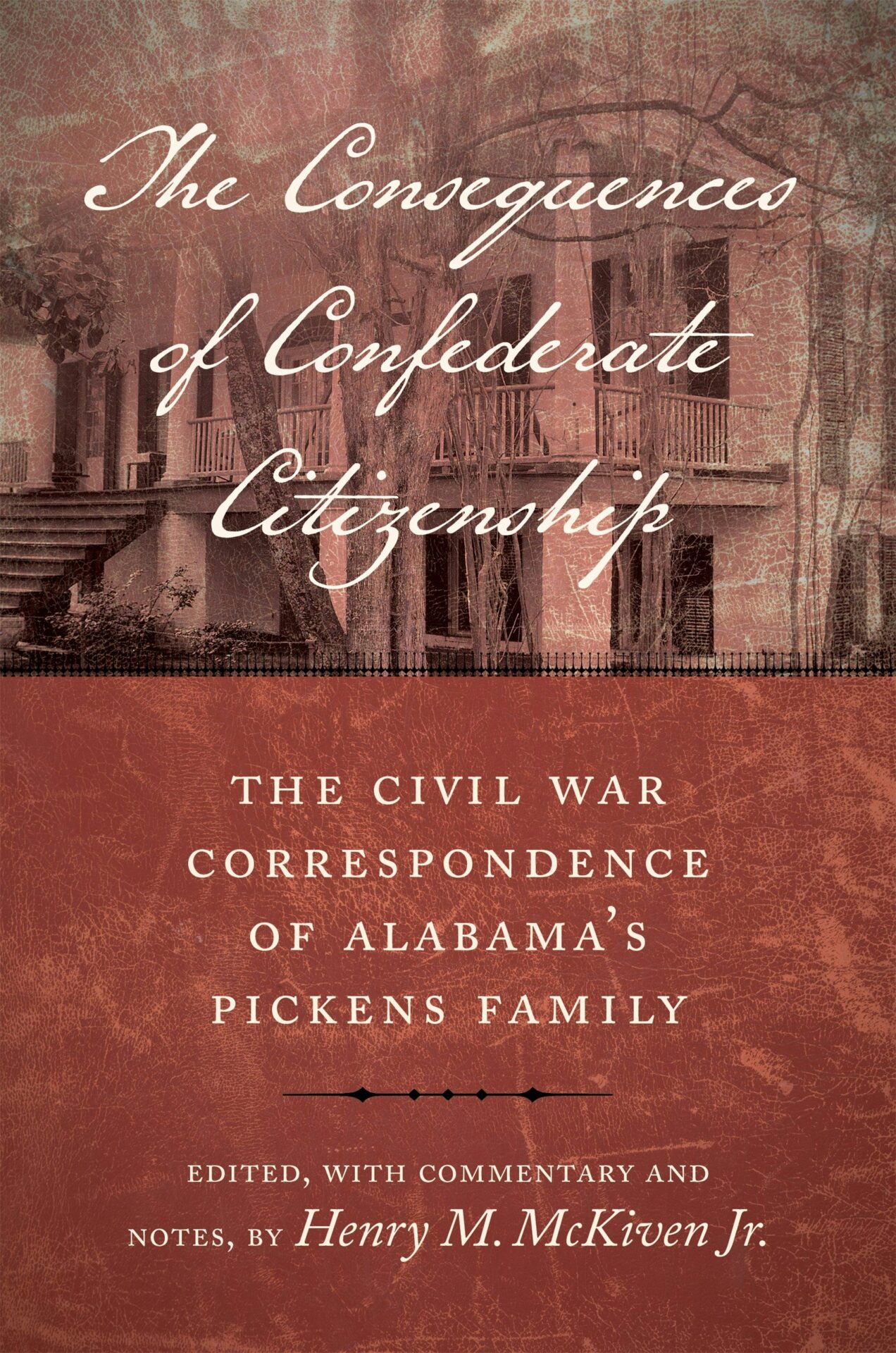Book Review: The Consequences of Confederate Citizenship: The Civil War Correspondence of Alabama’s Pickens Family

 The Consequences of Confederate Citizenship: The Civil War Correspondence of Alabama’s Pickens Family. Edited by Henry M. McKiven, Jr. Baton Rouge: Louisiana State University Press, 2025. Hardcover, 309 pp. $49.00.
The Consequences of Confederate Citizenship: The Civil War Correspondence of Alabama’s Pickens Family. Edited by Henry M. McKiven, Jr. Baton Rouge: Louisiana State University Press, 2025. Hardcover, 309 pp. $49.00.
Reviewed by Michael C. Hardy
“To the soldiers far away from loved ones at home,” wrote Sam Pickens, 5th Alabama Infantry in August 1864, “letters are the sources of his greatest happiness, and they are received and read with the utmost avidity and delight.” (234) The hundreds of thousands who served on either side during the Civil War, could easily echo Pickens’s sentiments.
The Pickens family hailed from Greene County, Alabama. Mary Gaillard was a recent widow, responsible for not only a large family but several farmsteads as well. The family was well educated, and for those left at home, continuing that education was a constant theme throughout the letters. Renting out property to people who would work the land was another ongoing theme, as was the care and wellbeing of their enslaved workers. And of course, there is the war.
The Pickenses did not believe secession likely, and two sons managed to avoid entering service through 1861. When the Conscription Act was passed, the eldest, Samuel, had just enlisted in a ninety-day company, doing garrison duty in Mobile. He elected to join a local, Greene County Regiment, 5th Alabama Infantry. Samuel was mustered in as a corporal in September 1862, joined his regiment in time for the battle of Fredericksburg in December 1862, was captured during the battle of Chancellorsville in May 1863 but was quickly paroled, was wounded during the battle of Fisher’s Hill in 1864, and was finally captured at the breakthrough below Petersburg on April 2, 1865. Samuel’s brother James did not have a strong constitution and, throughout the letters, trying to keep James out of the army was a persistent theme. In early spring 1864, James was forced to volunteer, also choosing Company D, 5th Alabama. James did not make it through his first battle, the Wilderness, in May 1864. He wound up at the surgeon’s tent and was then transferred to a hospital in Richmond. James was furloughed home and spent most of the rest of the war trying to get detailed as a clerk to some Confederate office. He displayed a desire to support the Confederate war effort but was unable to cope with campaign life.
Unusual for the time period, both sets of letters survive; those that Mary and her daughter wrote to Samuel and James in the field, and their letters home. While the majority of the letters are from home, those with military content include a wealth of information about the common soldier’s life. Samuel goes into great detail regarding the battle of Chancellorsville and his subsequent capture and brief imprisonment. James details his trip via the railroad from Alabama in early 1864 to the camp of the 5th Alabama in a series of letters that might be the best description of the transportation in private service available. Samuel wrote many letters over several months detailing the Overland Campaign and Early’s Valley Campaign.
McKiven dives deep into the family’s history both prior to and after the war. Samuel struggled to manage the family’s property in the post-war period. He passed away in 1890 and, in his will, turned over the property to James.
For those researching life on the home front in Alabama, The Consequences of Confederate Citizenship is a fine volume on a family from the upper demographic. For those studying military affairs, because the brothers were so literate, this is a good volume dealing with common soldier life. McKiven cites several Reconstruction-era letters in his Epilogue. It would have been great to have those included to deepen the study of the history of their home in Greene County, Alabama. The volume is case bound, making it a little more on the expensive side. Overall, The Consequences of Confederate Citizenship: The Civil War Correspondence of Alabama’s Pickens Family is recommended.
Michael C. Hardy is an award-winning and widely published author. A graduate of the University of Alabama, he has written on a large array of subjects — Confederate regimentals, Southern places, and personalities — in twenty-six books, numerous articles, and over one thousand blog posts. In 2010, Hardy was named North Carolina Historian of the Year by the North Carolina Society of Historians. He was also awarded the James I. Robertson Literary Prize by the Robert E. Lee Civil War Library and Research Center in 2018 for his history of the Branch-Lane Brigade, General Lee’s Immortals (Savas Beatie, 2018). His most recent book is Feeding Lee’s Army of Northern Virginia (Savas Beatie, 2025). When not researching, writing, and traveling, he volunteers at historic sites, sharing his love for history.
I had no clue that this book was out there. This is a new one that I am adding onto the list! Thanks for the awesome review!